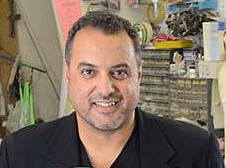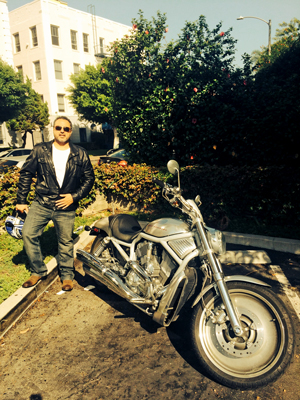The Search
Filling Suzanne Vernon’s shoes was never going to be easy. Vernon had helped to radically reform the Solve ME/CFS Initiative (then the CFIDS Association of America). Under her tutelage its Research1st program was emphasized, the Solve CFS BioBank was created, a “Research Institute Without Walls” was created and millions of dollars were poured into research projects.
The effort was successful. Gordon Broderick, Alan Light, Dikoma Shukla, Patrick McGowan and others participating in the program received major grants. The BioBank was effective in bringing new researchers to the field including two Lasker Award winners (Michael Houghton, Stephen Elledge) both of whom studied ME/CFS simply for the cost of shipping the samples to them.
The Research1st program was a success but it’s creator, Suzanne Vernon, was gone. Vernon’s work with the CDC’s ME/CFS program, her long interest and background in the disease had made her a natural hire. With few researchers of that ilk out there, the next research director probably wouldn’t have an ME/CFS pedigree.
That brought up the question – who would be interested? The Solve ME/CFS Initiative has loomed large in the ME/CFS field, but it’s a relatively small non-profit, and ME/CFS hasn’t exactly been thought of as a career-making field. The disease is controversial, it’s experienced long term declines in funding from the NIH and it was perhaps the only disease NOT in an Institute. It’s future was uncertain. Would the job announcement attract interest?
It did. In an encouraging sign for the field it actually attracted a lot of interest. Carol Head told me that over forty people – all PhD’s – some from top Universities in the country – applied for the post. She said she was gratified by the level of expertise they brought. She also said she sat each of them down and made clear what they were getting into.
She winnowed the field of forty down to three, and then down to one – Zaher Nahle, a Stony Brook and Harvard Alumni – won out.
Zaher Nahle
After talking to him I could see why. Smart, outgoing and personable Nahle struck me as an unusual blend of activist researcher. Nahle got his degrees in biochemistry and physiology but told me that from the beginning he wanted to make a difference in the public arena.

He said ME/CFS is controversial not because it is not a disease but because it hasn’t gotten enough funding. ME/CFS is actually following a rather familiar disease trajectory; lacking knowledge of its cause, psychological interpretations have taken hold first. They will diminish as pathophysiological explanations emerge. Multiple sclerosis was first thought to be hysteria and autism was believed to be the result of “cold parenting”.
Scientists he thought, should and ultimately will flock to this disease simply because it’s so fascinating.
Nahle already has a interesting possible research tie-in with ME/CFS tucked away in this past. He cut his teeth early in his lab work on metabolic genes affecting fatty acid synthesis and energy production in diabetes. As his lab grew it focused more and more on the effects of stress on mitochondrial genetics and bioenergetics. Extreme fatigue, he noted, is at least in part, very often a function of mitochondrial dysfunction.
Nahle described an expanded and responsive research program at the Solve ME/CFS Initiative. Instead of a funding drive for research money every three years, he envisioned one happening every year. He planned to devote more resources to targeted high-risk, high reward in-house projects. The BioBank (now the Solve ME/CFS BioBank and Patient Registry) is being streamlined for easier access and expanded in order to inform national and international studies.
Making a Difference
“The Kennedy School is a place that makes you believe anything is possible. It empowers you.” Zaher Nahle
Nahle said that science was changing. In order to be truly effective, now, you need to be able to shuttle from the laboratory to the boardroom. You need to know the science and you need to know public policy. You need to be able to articulate the research for policy makers.
Nahle needed to expand his scope; to have his feet in both the research and policy worlds. After getting his Ph.D Nahle’s next move was to the John F. Kennedy School of Government at Harvard.
The Kennedy School is basically a leadership program for difference makers in an academic setting. It’s dedicated to producing the kind of graduates who will make the kind of bold “man on the moon” promises that Kennedy made 50 years ago. (Kennedy’s promise to put a man on the moon before the decade was out was made before we’d put a man in space.)
At the heart of our school lies an abiding commitment to advancing the public interest by training leaders, applying scholarship and engaging with practitioners. John F Kennedy School of Government
The commitment to produce leaders and to make a difference by advancing the public interest permeates the schools website.
Our students are prepared and trained to lead, no matter whether in the private, public or non-profit sector. John F Kennedy School of Government
But why take on ME/CFS I asked? It’s been an orphaned child at the NIH for over a decade. Funding is in the dumps. Core needs have not been addressed. It’s got a horrible name and the patient community can be tough. Why take on a disease with so many needs?
All that difficulty was all part of the attraction, Nahle said. The Kennedy School was full of crazy people like him who are attracted to really difficult tasks. His mentor, Kenneth Feinberg recommended he take the job over other opportunities that paid far more. It was the place, he said, Nahle could make the most difference. His circle of support encouraged him to go with his gut and take the position.
Nahle described a charged and passionate environment at the Kennedy school which was energized by people from all walks of life and different parts of the world. Everyone who came out of the Kennedy program, he said, came out with an indelible belief in the power an individual can make in the world. We each have the responsibility, he asserted, to dedicate a portion of our lives to effect change. We are all global citizens. What we do effects everything else.
The Kennedy school wasn’t about producing a bunch of starry-eyed visionaries, however. Perseverance in one’s goal while being able to skillfully adapt to the situations that arise, Nahle said, was critical. Failing at times was simply part of the process. People with big visions are going to fail at times. Not being disempowered by failures when they occur was the secret.
Nahle’s experience with a friend, Mukhtar Ogle, at the Harvard School demonstrated how our old belief systems can get in the way. As a child in Kenya Ogle’s legs had been devastated by polio. As an adult Ogle had adapted well to his atrophied legs but Nahle saw trouble looming in the future.
Suggestions that Nahle could improve his gait, however, were initially met with anger. Ogle, he explained, had come to believe that his disability was meant to be – that there was no changing it. In fact there were things Ogle could do and eventually did. Custom prosthetics were created that allowed him to walk normally for the first time in decades. Ogle and Nahle then formed a non-profit to bring similar devices to polio sufferers in Africa.
Running Towards ME/CFS
Nahle clearly wants to change the status quo in ME/CFS as well. ME/CFS is not doomed to poor funding or a very slow pace of change. It hasn’t been sentenced to a lack of interest by researchers.
I asked Nahle about a speech “Running Toward” that he referenced in a Harvard Kennedy School article. The speech was made by the Harvard University President in 2013. He stated:
I wish for you, Class of 2013, lives of running toward. Lives in which you are motivated, even seized, by something larger than yourselves, lives of engagement and commitment and, yes, risk. Don’t settle for Plan B, the safe plan, until you have tried Plan A, even if it might require a miracle.
What was Plan A and Plan B for chronic fatigue syndrome. Nahle said there is no Plan B, there is only Plan A – finding a cure.
Get Your Motor Running
Get your motor runnin’
Head out on the highway
Lookin’ for adventure…Steppenwolf

He’s logged thousands of miles on the bike. He’s done most of the East Coast up to Maine. Next on his list is Hwy 54 from St. Louis to El Paso and Hwy 66 ending in Santa Monica.
He’s pretty old school about his bike preferring the older V-Rod models over the newer ones with softer rides. He wants to feel the road – every bump and nick of it – not float above it. It’s all about, he said, connecting with the wind and the rough terrain.









I think he may be just what we need. This disease screams for someone who can think outside the box while traveling at high speed toward a cure! Go for it and “Ride The Wild Wind”, Dr. Nahle
Nicely said Nita:)
Great article and insight into Dr Nahle and what drives him. CFS is such a complex issue, but he clearly gets “it” (as far as one can get it!). Thank God for him, he is exactly what we need – bravo!
Nice bike, Zaher!
Thanks for this article, Cort – we’re very lucky indeed to have Zaher. What a fascinating background! We couldn’t have designed and built a better person for our situation.
Zaher mentioned how many poorly understood organic diseases go through the process of first being thought by some to be psychological. We’ve got our own problems there, of course, and the PACE trial and the spin that surrounds its bad science and misleading results is a big driver of that.
I hope you wont mind me mentioning the next step of the campaign to tackle PACE. Yesterday, #MEAction launched a new petition directed at HHS, asking them to get the CDC and AHRQ to remove PACE and other “Oxford definition” studies from their evidence base for their clinical guidelines.
Please, everyone, sign the petition:
http://my.meaction.net/petitions/call-for-cdc-and-ahrq-to-investigate-pace
It’s international because US guidelines affect patients worldwide.
Let’s keep the pressure on PACE!
Nice piece. One question: any good references (articles or books) on how various diseases throughout history have gone through phases, where lack of knowledge led to psychological explanations before the we found a biomedical cause. Would be very useful!
only a plan A, god bless plan A. While I adjust to managing my life daily on plans b, c, and d, and crap “there goes plan e” I am deeply grateful that you are glued to plan A. With that dedication I might be able to get to my Plan A life. The one where I can wash my hair AND cook my dinner, AND use my beautiful brain, and visit my daughter…… Also, the said daughter is studying medicinal chemistry in Scotland and I’ve sent her this link as inspiration, as a beginner on her journey I’m so glad that there is this kind of role model … using the scientific knowledge and adventure not to create a new box but to blow the concept of the box wide open. thank you
🙂
I actually feel HOPE with this man. Oh, my, I hope I’m right!!! Sincerely, hipjaven@gmail.com
He’s an impressive guy 🙂
I hope he can develop relationships and have a goal. A cure is beyond belief. Some treatments and doctors who can guide a patient in following them, that would be huge. Earlier diagnosis, sooner deciding when to change one’s life, quit the job, get help at home, when the disease cuts one down in half to start, and still qualify for SSDI. The realities of being disabled when not already wealthy and living on the interest.
How does one pronounce his name?
Is it zah her nah lee or something else?